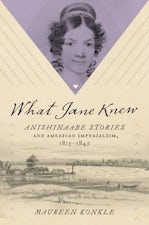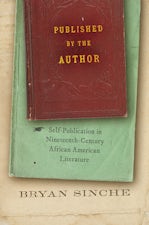Blood and Irony
Southern White Women's Narratives of the Civil War, 1861-1937
By Sarah E. Gardner
352 pp., 6.125 x 9.25, 18 illus., notes, bibl., index
-
Paperback ISBN: 978-0-8078-5767-0
Published: August 2006 -
E-book EPUB ISBN: 978-0-8078-6156-1
Published: July 2004 -
E-book PDF ISBN: 979-8-8908-7302-6
Published: July 2004
Buy this Book
- Paperback $37.50
- E-Book $25.99
For Professors:
Free E-Exam Copies
Gardner considers such well-known authors as Caroline Gordon, Ellen Glasgow, and Margaret Mitchell and also recovers works by lesser-known writers such as Mary Ann Cruse, Mary Noailles Murfree, and Varina Davis. In fiction, biographies, private papers, educational texts, historical writings, and through the work of the United Daughters of the Confederacy, southern white women sought to tell and preserve what they considered to be the truth about the war. But this truth varied according to historical circumstance and the course of the conflict. Only in the aftermath of defeat did a more unified vision of the southern cause emerge. Yet Gardner reveals the existence of a strong community of Confederate women who were conscious of their shared effort to define a new and compelling vision of the southern war experience.
In demonstrating the influence of this vision, Gardner highlights the role of the written word in defining a new cultural identity for the postbellum South.
About the Author
Sarah E. Gardner is associate professor of history at Mercer University in Macon, Georgia.
For more information about Sarah E. Gardner, visit
the
Author
Page.
Reviews
"A prodigious work of scholarship."--American Historical Review
"An important addition to what is, in many ways, a thin literature on the culture of the New South. . . . Instructors will find it a useful text in courses on the New South, southern women's history, and southern literature."--Journal of American History
"Should prove attractive to scholars representing a wide range of academic interests. . . . Should be added to all library collections and support courses on or research about the Civil War, women's history, or public history."--South Carolina Historical Magazine
"The great strength of Blood and Irony is Gardner's analysis of the development of the Lost Cause myth, and she certainly succeeds in demonstrating how postwar reality informed interpretations of the past. Her focus on women's contribution to the creation of a new southern identity, and their active involvement in writing and publishing war stories throws up interesting questions about how women viewed themselves and their role in the postwar South. . . . Blood and Irony is a welcome addition to a new body of scholarship that explores the important contribution that women made to the creation of a cultural identity in the postwar South."--Civil War Book Review
"Gardner provides a thoughtful explanation of white women's efforts to shape the story of our nation's past."--Arkansas Historical Quarterly
"Gardner's encyclopedic survey and extensive archival work bring together better-known texts of the era, such as writings by Margaret Mitchell and Ellen Glasgow, with unpublished and lesser-known works, including diaries and journals of Confederate widows."--American Literature




